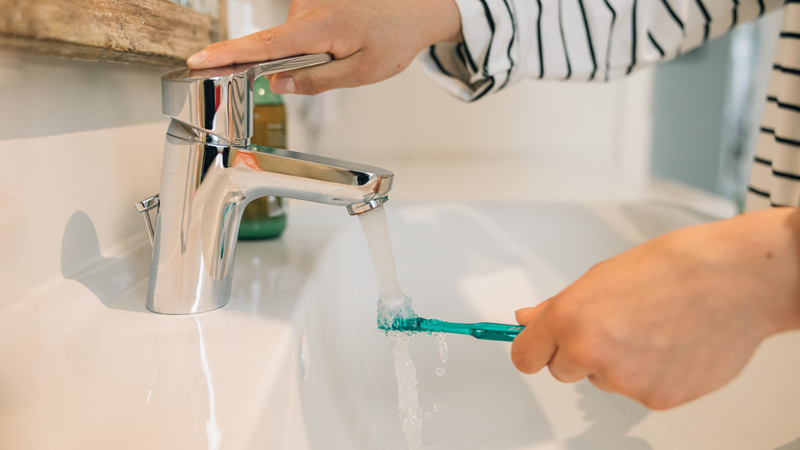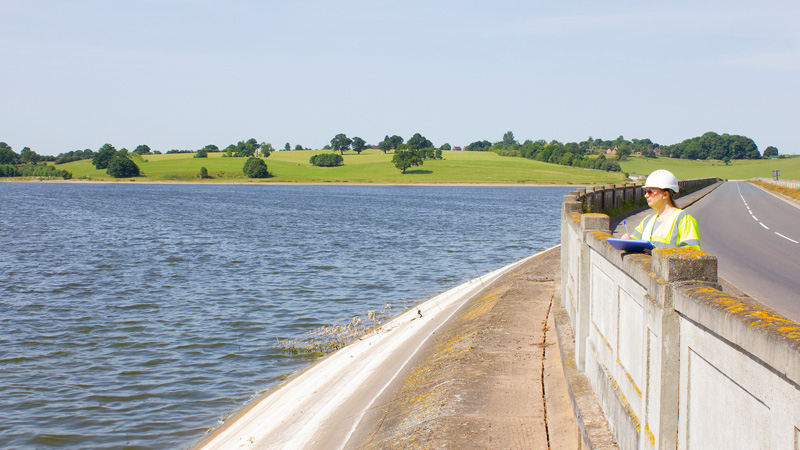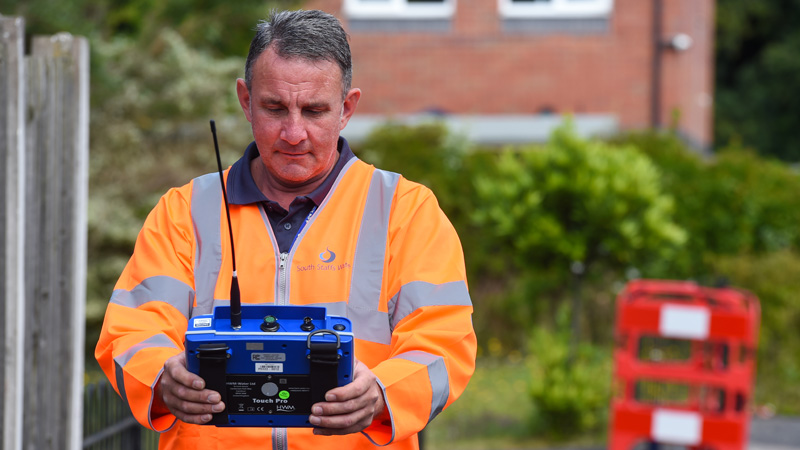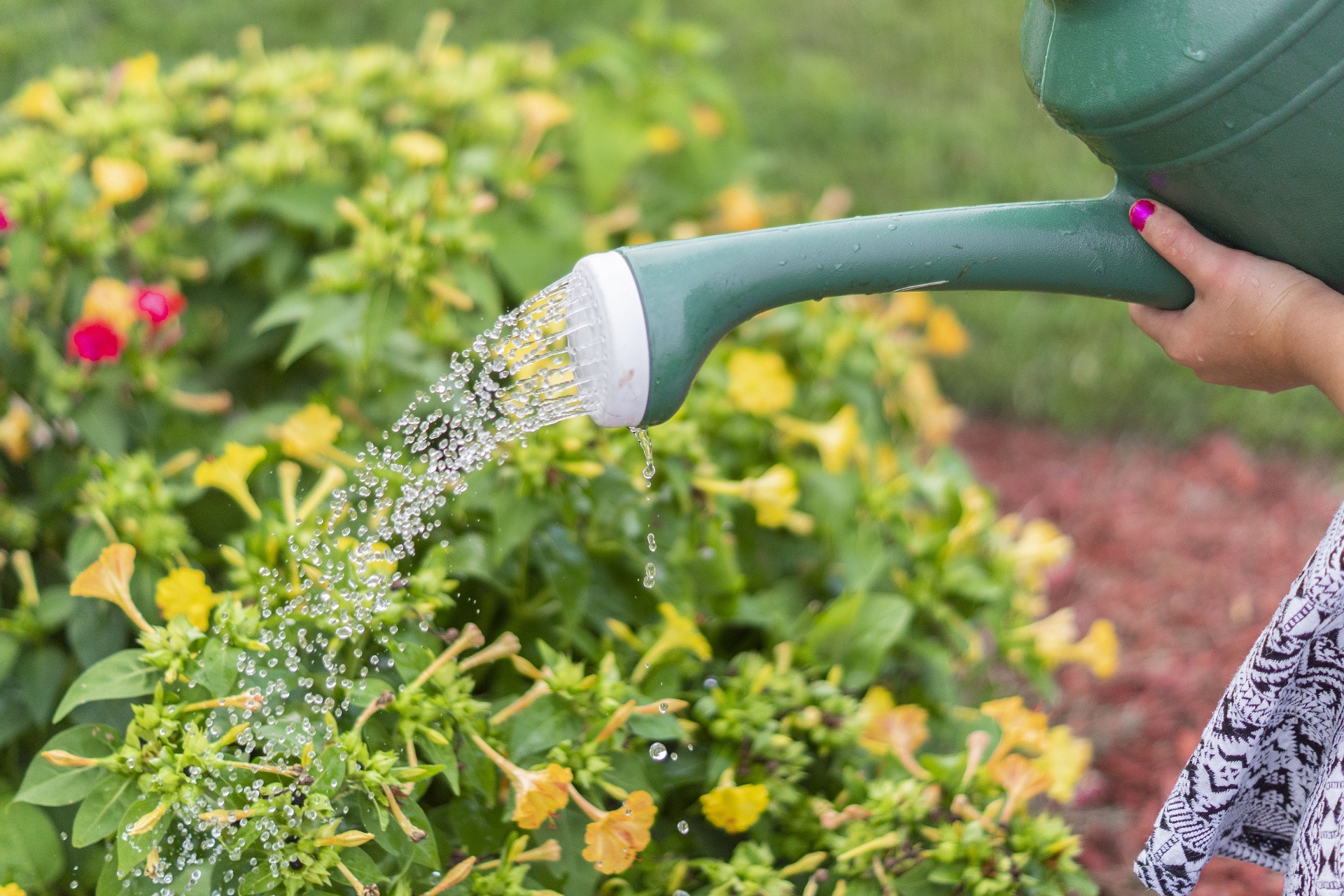Why saving water is important
Posted: 14 May 2025
In England, we have seen our driest start to spring in 69 years, and, in our region, we have seen lower than average rainfall for the last three months, with April seeing 61% less rainfall, and March 77% less rainfall.
 Although the last two years have been wetter, drier conditions at the start of this year mean a drought is a possibility we may need to prepare for.
Although the last two years have been wetter, drier conditions at the start of this year mean a drought is a possibility we may need to prepare for.
This week is Water Saving Week, an opportunity to reflect on the water we use, understand how water is sourced and make small changes that can help save water at home and at work, to preserve this precious resource for future generations.
What water resources do we have in our region?
In the South Staffs region, we have surface water abstractions, open reservoirs and treatment works. We also have boreholes sunk into the underground sandstone aquifer.
Surface water accounts for, on average, around 65% or 320 million litres a day of supply and the boreholes for 45% or 146 million litres a day of supply.
Surface water treatment is much more complicated and requires large treatment works to purify the water.
 Blithfield Reservoir - one of region's reservoirs
Blithfield Reservoir - one of region's reservoirs
Why is saving water important?The average person in our area uses 139 litres of water a day. Whether that is in the kitchen making a cup of tea, or in the bathroom having a shower, every drop counts.
Only 0.3% of water on Earth is freshwater that we can readily use, and all of the water we consume must be taken from the natural environment. This can put pressure on habitats and ecology.
The water from your tap is transported and treated to a high standard to be safe to drink, so it makes sense not to waste it and to use it as efficiently as possible.
It is also worth remembering how fortunate we are to have high-quality water available on tap all the time, as this is not the case in many other parts of the world.
What is South Staffs Water doing to sustain our water resources?As a society, we use a lot more water than we did 50 years ago, and this could put a strain on our water resources for future generations.
We, as a clean-water company, have a role to play in encouraging and educating our customers on the importance of using water wisely. To support this, we install meters, provide water efficiency advice and offer free water-saving devices for households.
 Securing our future water supplies, whilst protecting the environment, is a key focus for us.
Securing our future water supplies, whilst protecting the environment, is a key focus for us.
On our part, we are driving down leakage on our network every year, aiming for a 50% reduction by 2040.
As part of our Water Resources Management Plan, we are also focusing on how we can safeguard our region’s water demand.
We aim to:
- support a 9% reduction in non-household water use by 2038
- help customers to reduce household water use to 110 litres per person per day by 2050 – down by just under 30 litres
- roll out universal smart metering for all our customers
Why do water companies sometimes request hosepipe bans in the summer?As part of our plans for the future, we monitor droughts and extreme dry weather events.
This kind of weather can restrict the available water we have to supply customers without harming the environment, as well as causing customer water use to increase, particularly for outside discretionary use.
We have a drought plan that identifies triggers when we may need to impose a temporary use ban. This restricts the use of a hosepipe for certain activities, as a hosepipe can use up to 1,000 litres an hour!
Where customers tend to use a hosepipe, like washing the car or watering their plants, we would encourage the use of a watering can, which uses a fifth of the water a hose pipe would use in an hour.
 What can I do to save water? There are many ways you can save water, and doing so could also save you money if you’re on a water meter.
What can I do to save water? There are many ways you can save water, and doing so could also save you money if you’re on a water meter.
- Shower for two minutes less than normal – saves 30 litres
- Run the washing machine on eco mode – saves 30 litres
- Turn off the tap when you brush your teeth – saves 28 litres
- Wash up in a bowl, not under a running tap – saves 52 litres
- Use a watering can rather than a hose in the garden – saves 145 litres
- Use one button on a dual-flush toilet – saves 15 litres
Learn more about the small changes you can make at home to save water
For more information on Water Saving Week, visit Waterwise.

